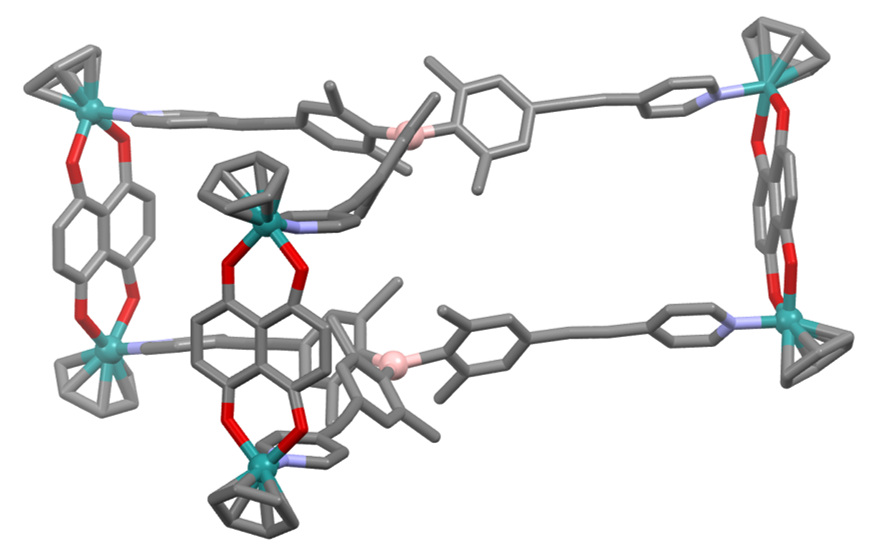|
The formation of metal-ligand bond as the impetus via coordination-driven self-assembly is powerful tool in construction of supramolecular coordination compounds with well-designed molecules that have suitable angle, binding ability, and shapes. These fascinating molecules have attracted considerable attention not only because of spectacular architecture in nanoscale but also because of their wide-ranging applications as chemical sensor, nanomaterials, biomaterials and so on. Although the interest over the past two decades has rapidly grown to obtain supramolecular coordination complexes with the aid of high three-dimensional architectures based on non-covalent interactions, it is still difficult to obtain a huge metallosupramolecules due to multiple products, reversible reactions and serendipitous self-assembly. We are interested in exploring metal-ligand chemistry to design and synthesize three-dimensional architectures as well as to control their connectivities in solid state structures.
The trigonal prismatic supramolecular cage was achieved from [2 + 3] stoichiometric combination of tritopic N-donor Borane ligand and arene-ruthenium acceptor. This cage was characterized by various analytic methods including 1H, diffusion ordered spectroscopy (1H 2D-DOSY), electrospray ionization mass spectrometry (ESI-TOF-MS), and single crystal X-Ray diffractometer. The solid-state structure of the synthesized cage revealed that it shows the distinct binding mode between N-donor and Ru acceptor and structural stability of trigonal construction. Moreover, the size of the inside cavity is about 450 Å3 which can be estimated using six Ru vertices, suggesting that it can be an interesting cage molecule for host-guest chemistry such as sensing of small molecules.
|

|
 121st General Meeting of the KCS
121st General Meeting of the KCS
 121st General Meeting of the KCS
121st General Meeting of the KCS